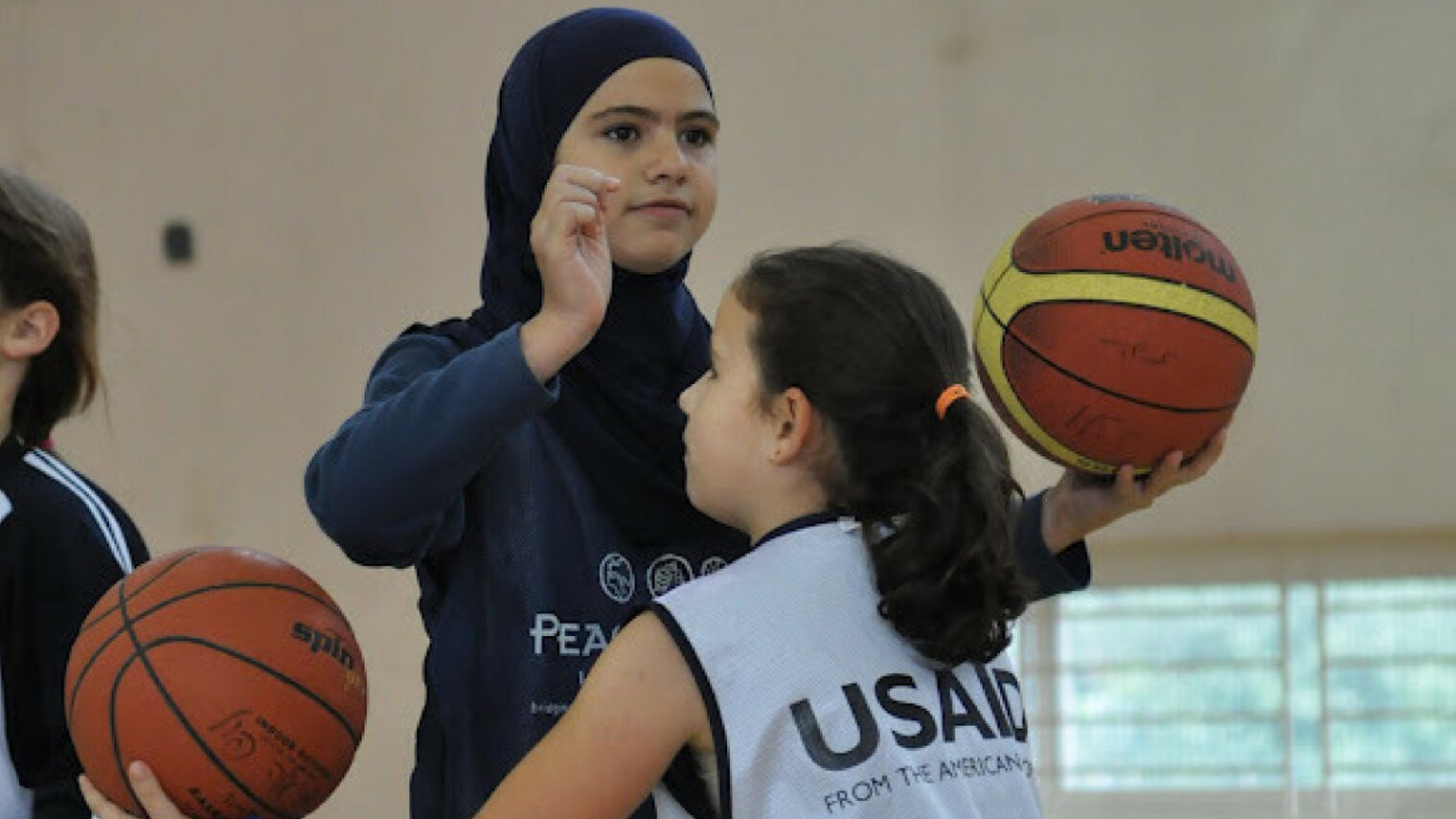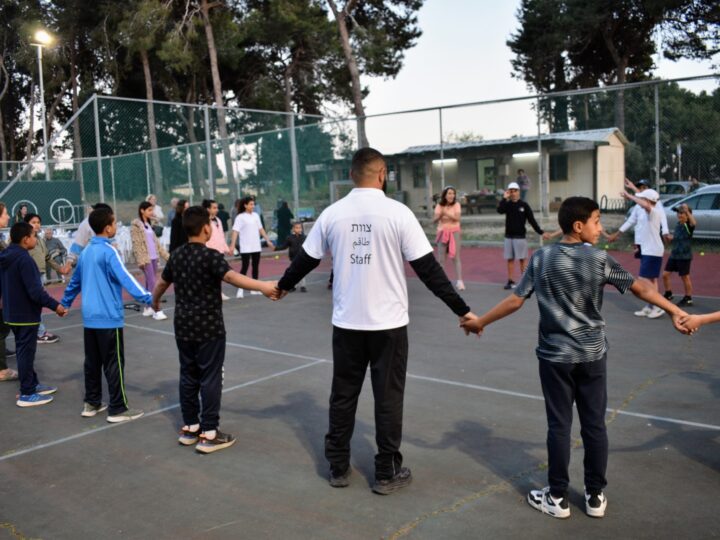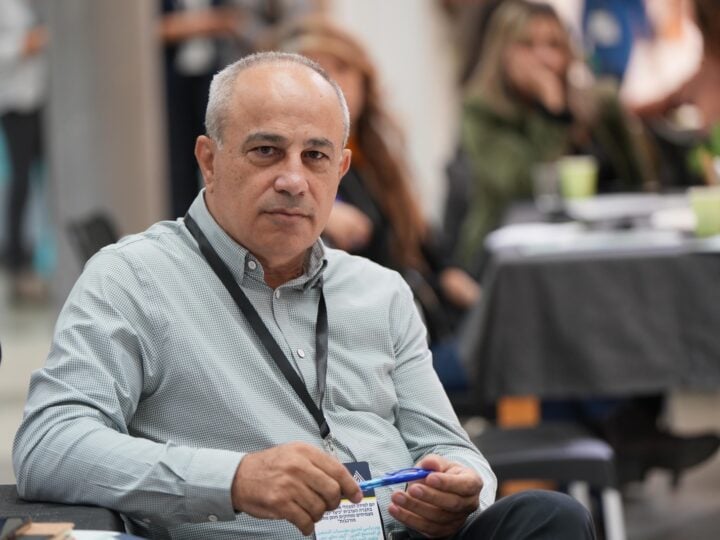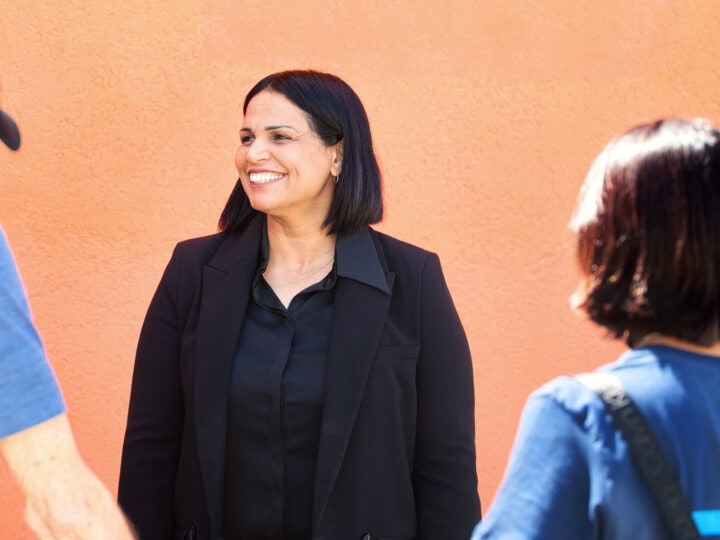Despite growing up in the diverse city of Jerusalem, where Jews and Arabs encounter each other at the grocery store, cinema and public transportation, a Jewish teenager named Toot had never spoken to an Arab her age.
She joined PeacePlayers, which works to unite communities through sport, and became a member of one of the first mixed Jewish and Arab basketball teams in Israel.
While training and playing alongside Arab girls her age, Toot formed friendships that existed on and off the court.
“It’s very unique that they’re a mixed team in the league and it really accelerates the impact on the girls. They are together sometimes up to six times a week, practicing and traveling around the country together for games. It’s an accelerator for friendships,” says Karen Doubilet, managing director of the Middle East branch of PeacePlayers, a nonprofit organization that uses basketball to unite, inspire and educate young people in divided communities around the world.
As part of a report monitoring change as a result of the program, Toot recalled that when Israel and Gaza experienced a tense period of fighting in the summer of 2014, her Arab teammate and friend Aysha sent a text after a siren went off to see if Toot and her family were okay.
“The moment I got the text message, I realized that while I’m in my [bomb] shelter with my family, Aysha is also in a shelter with her family. We’re worried that everything is okay with our friends and family – and she’s included in my worry, and I’m included in hers. When I realized that, it broke a huge barrier for me,” Toot recalled.
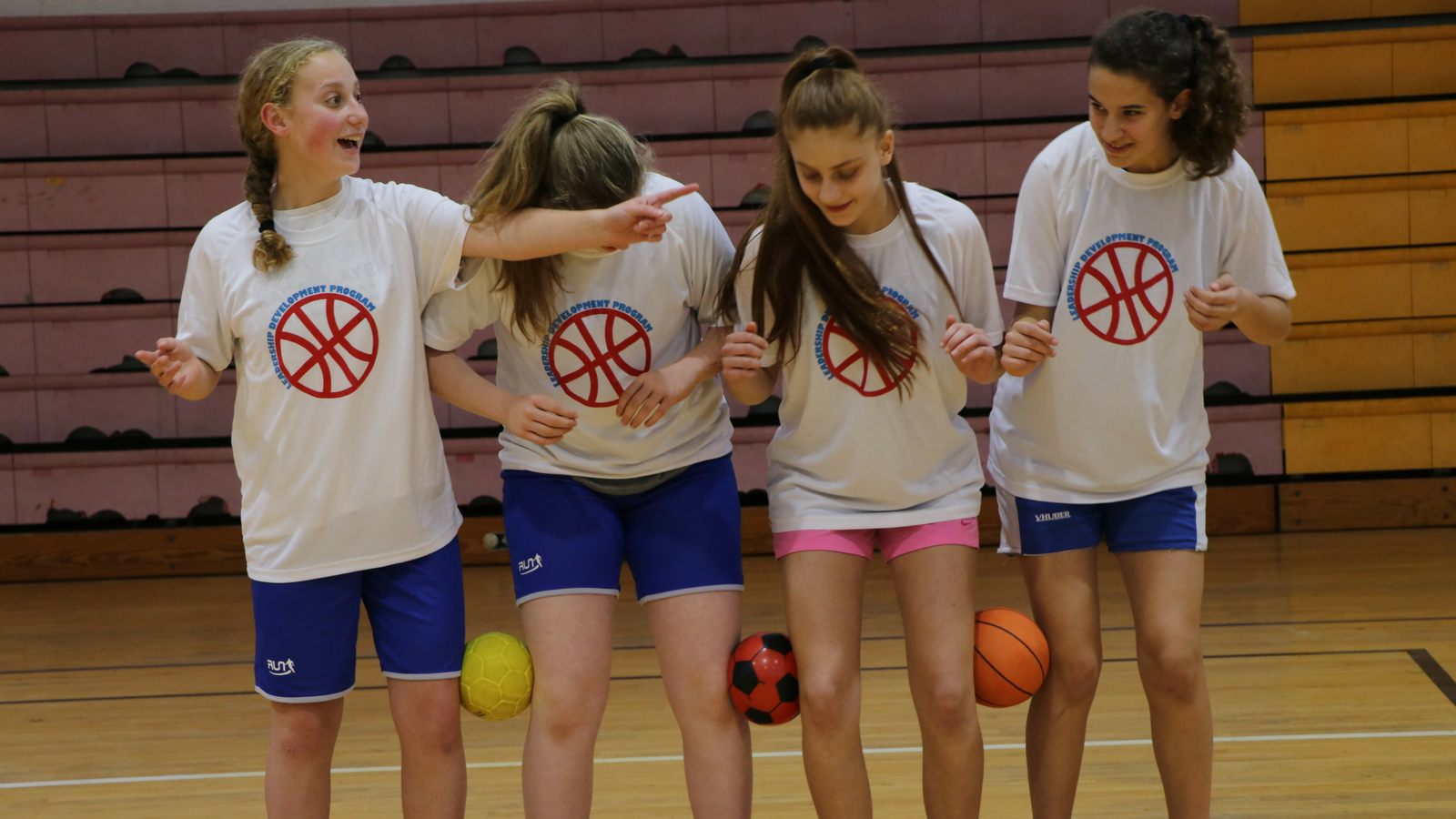
This kind of change in thinking is what PeacePlayers aims for with its leadership-focused and team-building curriculum that takes place on the basketball court, a common ground for both sides.
As part of a multi-year randomized control trial study, researchers from New York University examined the impact of the program among participants in the Middle East. Preliminary results have found that participation in the program is directly linked to kids adopting what PeacePlayers calls “positive peacebuilding behavior.”
“What this means is that they’re engaging in behaviors that mitigate conflict in their own communities — for example, speaking out against a discriminatory action or becoming an advocate,” explains Doubilet.
The study is one of the first to test sport and peacebuilding methodologies in action.
Playing and living together
PeacePlayers International was founded in Washington, DC in 2001 by Sean Tuohey and his brother Brendan on the premise that “children who play together can learn to live together.”
The organization operates in Israel, Cyprus, South Africa and the US, where it works in partnership with Nike to promote equality in cities including Brooklyn, New York, Baltimore and Detroit.
The organization’s Middle East program, which receives funding from USAID, launched in 2005 and operates in the Jerusalem area, central and northern regions. About 75% of participants are female, which Doubilet says might be due to lack of opportunities for girls in disadvantaged and conservative communities in Israel.
The program, a long-term model beginning with children as young as six, consists of several stages. During the first part of the program, players from one Arab and one Jewish community participate in local basketball practices and skill sessions. About once a month, they come together for a joint activity involving mixed teams, dubbed a “Twinning.”
“At the beginning it’s just about getting the kids working together. We do all sorts of drills that facilitate cooperation, where they’re learning each other’s’ names, learning sportsmanship and teamwork, learning words in each other’s languages and things about each other,” Doubilet tells ISRAEL21c.
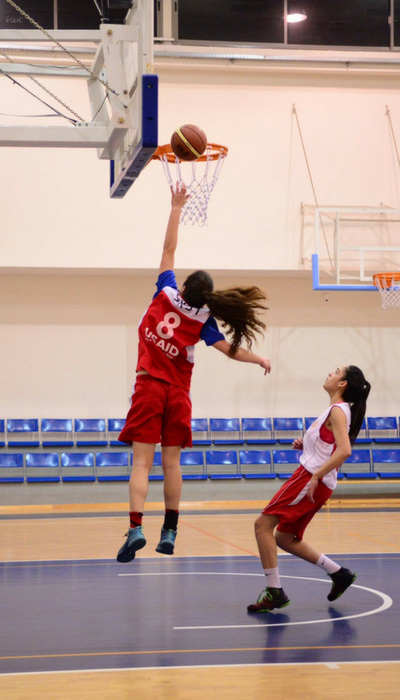
In the second stage, the “all-stars program,” the teams and communities merge into one competitive team that plays in the Israeli Basketball Association Youth League. The other teams in the league are unaffiliated with PeacePlayers and typically are Jewish-only or Arab-only.
“Most of the kids who come to the program don’t come for the peace part. They come for the basketball. That’s the hook and that’s what allows us to get into communities that might not normally take part in activities where they’re meeting with the other side,” said Doubilet.
Using a specially designed curriculum, “The Anatomy of Peace,” the organization provides skills to deal with conflict of any type, whether it’s on the basketball court, at home, with a teacher or with friends.
Each concept from the model is associated with a specific basketball drill or story, Doubilet explained. The coach discusses the concept, the players do a drill that reinforces the concept on the court, and then they debrief together.
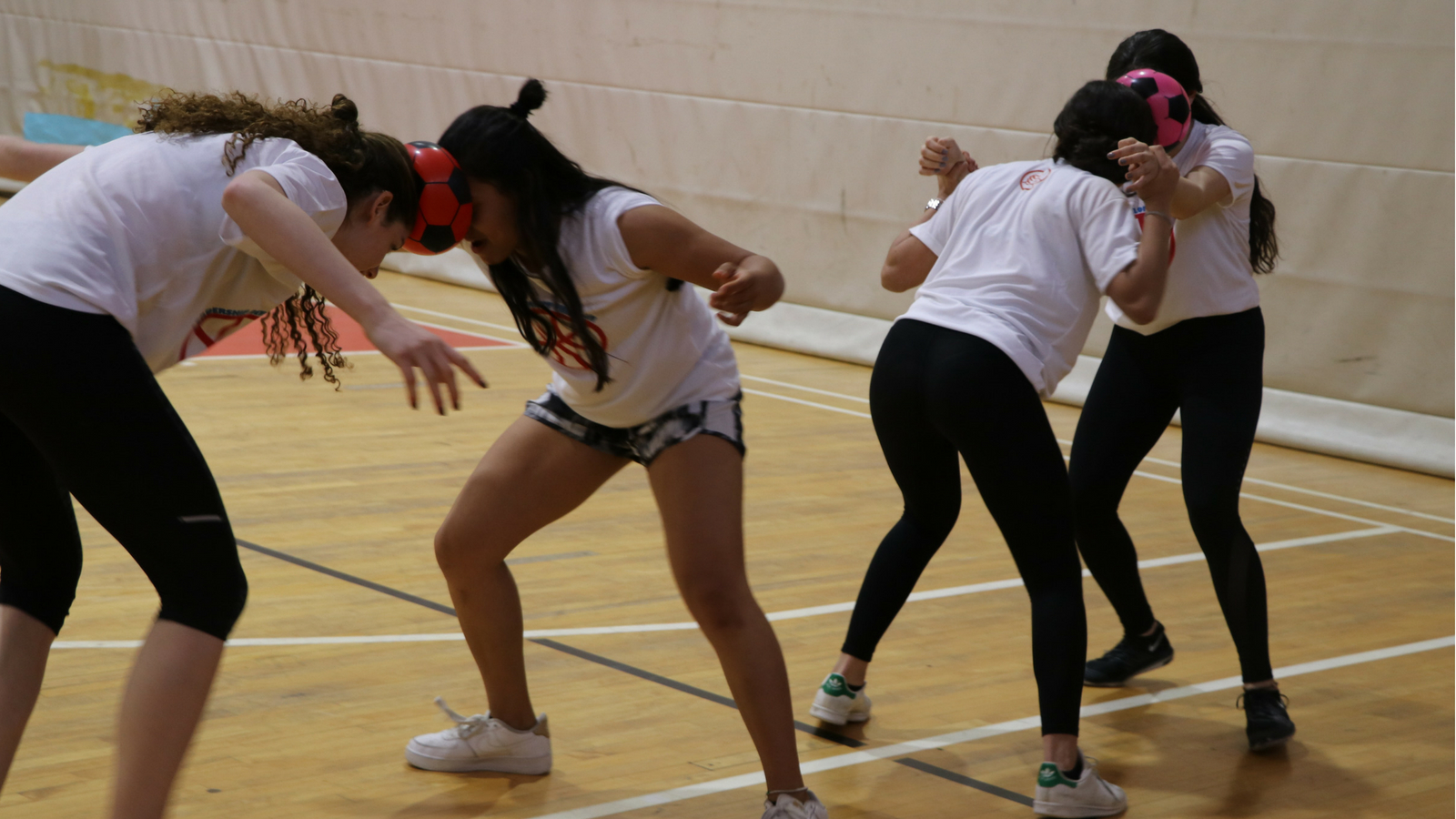
The third stage of the PeacePlayers program is the leadership program, which encourages veteran participants to become coaches and leaders in their communities through hands-on training and social action projects. Currently, 60% of coaches and facilitators are former PeacePlayers participants.
Doubilet recalled that last year, a 15-year-old Jewish girl from the leadership program asked her teacher at school if she could take over a lesson regarding Jewish and Arab relations.
“She went up there and talked about her experiences in PeacePlayers and about how she developed Arab friends,” Doubilet said. “She goes to a school in Jerusalem where people weren’t so enthusiastic at the beginning, but eventually the principal asked her to go around to all of the classes and do the same talk.”
Families of both the Jewish and Arab players are getting involved as well. There have been joint Ramadan dinners and Lag B’Omer bonfires spearheaded by parents, where both cultures were able to learn about each other.
In June this year, PeacePlayers was awarded the 14th annual Institute of International Education (IIE) Victor J. Goldberg Prize for Peace in the Middle East specifically in recognition of its work bringing together Jewish and Arab women from the Arab and Israeli communities of Tamra and Nahariya.
This women’s team, led by coaches Shadi Khatib and Dor Dayan, made history in 2016-2017 season as the first female Israeli and Arab team to advance to the national division after winning the regional championship.
For more information, click here




